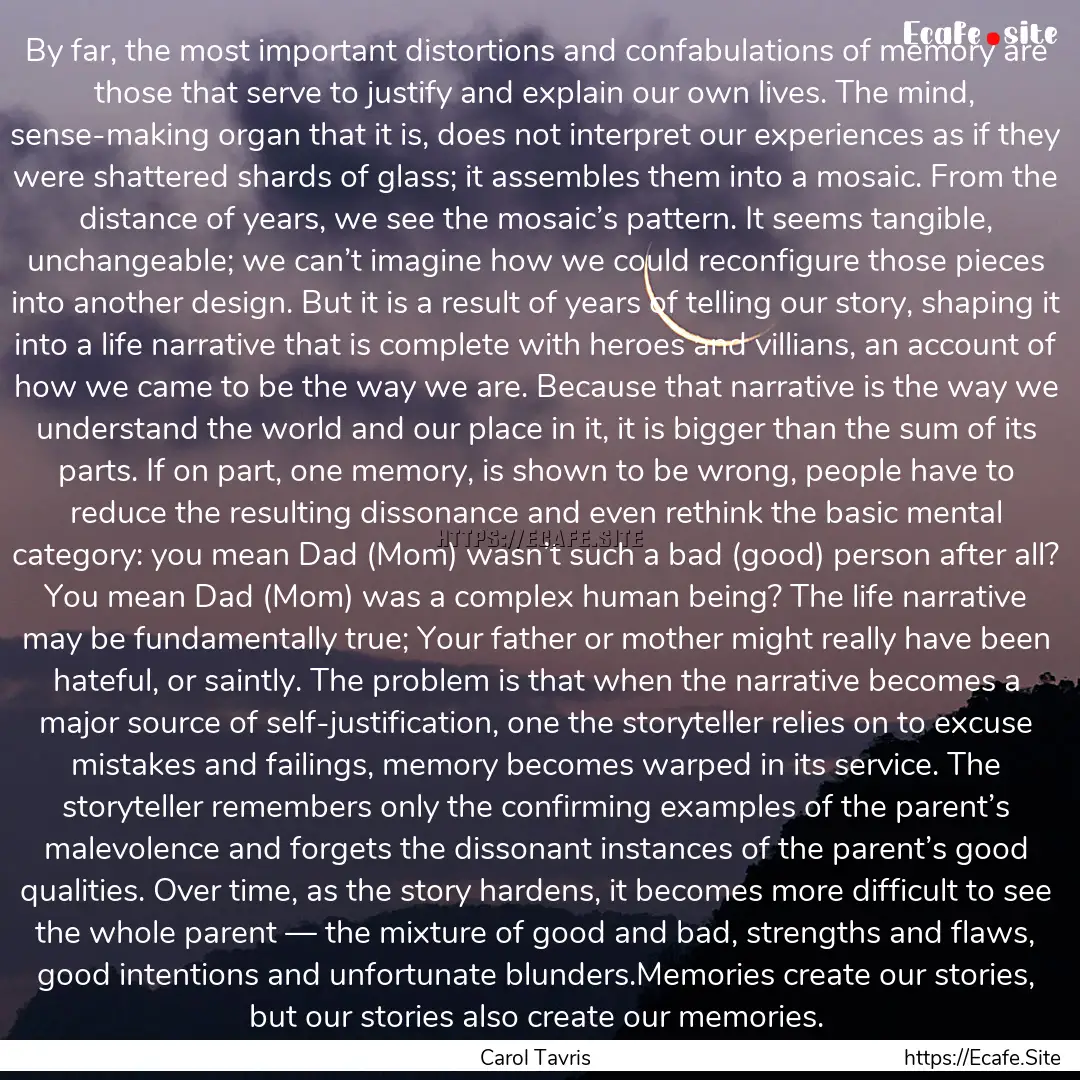
Report, if you have a problem with this page“ By far, the most important distortions and confabulations of memory are those that serve to justify and explain our own lives. The mind, sense-making organ that it is, does not interpret our experiences as if they were shattered shards of glass; it assembles them into a mosaic. From the distance of years, we see the mosaic’s pattern. It seems tangible, unchangeable; we can’t imagine how we could reconfigure those pieces into another design. But it is a result of years of telling our story, shaping it into a life narrative that is complete with heroes and villians, an account of how we came to be the way we are. Because that narrative is the way we understand the world and our place in it, it is bigger than the sum of its parts. If on part, one memory, is shown to be wrong, people have to reduce the resulting dissonance and even rethink the basic mental category: you mean Dad (Mom) wasn’t such a bad (good) person after all? You mean Dad (Mom) was a complex human being? The life narrative may be fundamentally true; Your father or mother might really have been hateful, or saintly. The problem is that when the narrative becomes a major source of self-justification, one the storyteller relies on to excuse mistakes and failings, memory becomes warped in its service. The storyteller remembers only the confirming examples of the parent’s malevolence and forgets the dissonant instances of the parent’s good qualities. Over time, as the story hardens, it becomes more difficult to see the whole parent — the mixture of good and bad, strengths and flaws, good intentions and unfortunate blunders.Memories create our stories, but our stories also create our memories. ”




